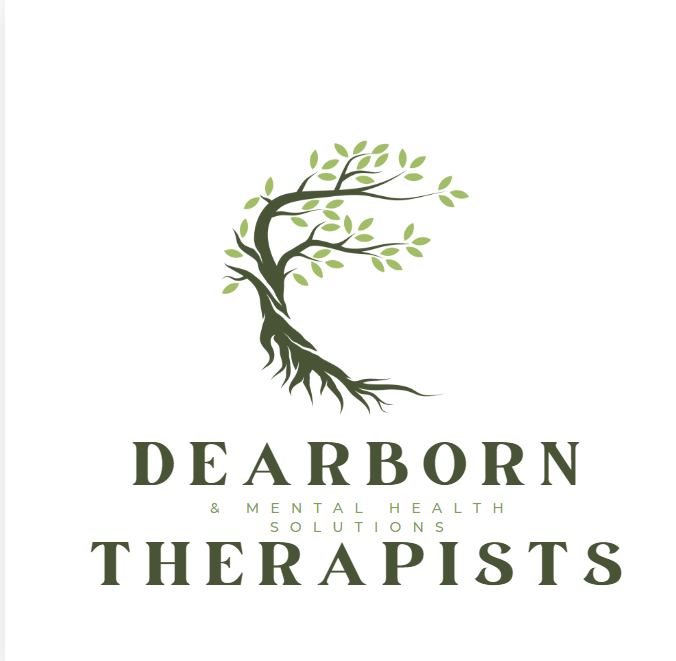How Do I Stop a Panic Attack? Effective Strategies for Relief
Simple Techniques to Calm Panic Attacks and Connect with Trusted Therapists in Dearborn

Introduction
Panic attacks can feel terrifying. Your chest tightens, your heart pounds, and your mind races with thoughts that something terrible is happening. If you’ve ever asked yourself “How do I stop a panic attack?”, you’re not alone—millions of people across the United States search for this very question every year.
At Dearborn Therapist and Mental Health Solutions, we understand how overwhelming panic attacks can be. While they are not life-threatening, panic attacks can greatly disrupt your life if left unaddressed. The good news is there are effective, evidence-based strategies that can calm both your body and mind.
We want to be clear: we are not a mental health clinic. We are a referral service that helps connect individuals and families with licensed therapists, counselors, and psychologists who specialize in anxiety and panic disorders. Our mission is to make the process of finding the right provider in Dearborn and surrounding communities simple and stress-free.
This article will cover:
- What panic attacks are and why they happen
- Proven strategies to stop a panic attack in the moment
- Long-term approaches for managing panic disorder
- When to seek professional help
- A Q&A section with answers to the most common questions about panic attacks
What Is a Panic Attack?
A panic attack is a sudden wave of fear and physical discomfort that peaks within minutes. Even though panic attacks are not dangerous, they can feel life-threatening and cause people to avoid daily activities.
Common Symptoms of Panic Attacks:
- Rapid or pounding heartbeat
- Shortness of breath or hyperventilation
- Chest pain or tightness
- Sweating, chills, or hot flashes
- Dizziness or nausea
- Trembling or shaking
- Tingling or numbness
- A sense of detachment from reality
- Fear of losing control or dying
Many people experiencing their first panic attack believe they are having a heart attack or stroke, which often leads them to seek emergency medical care.
Why Do Panic Attacks Happen?
While panic attacks may feel unpredictable, there are several common triggers and risk factors:
- Stress or Trauma – High levels of stress or unresolved traumatic experiences can set the stage for panic.
- Family History – Genetics may play a role in panic disorder.
- Brain Chemistry – Imbalances in serotonin and norepinephrine are linked to anxiety conditions.
- Medical Conditions – Hormonal or thyroid issues can mimic panic symptoms.
- Lifestyle Factors – Caffeine, alcohol, or stimulant use can increase the likelihood of panic episodes.
Regardless of the cause, panic attacks are treatable, and there are strategies that work both in the moment and long term.
How to Stop a Panic Attack Fast: Step-by-Step
1. Breathe with Intention
Controlled breathing is one of the most effective ways to reduce panic symptoms:
- Box Breathing: Inhale for 4 seconds, hold for 4, exhale for 4, hold for 4.
- Belly Breathing: Place a hand on your stomach and take slow, deep breaths to engage your diaphragm instead of shallow chest breathing.
2. Ground Yourself in the Present
Try the 5-4-3-2-1 method:
- 5 things you see
- 4 things you feel
- 3 things you hear
- 2 things you smell
- 1 thing you taste
This technique interrupts spiraling thoughts and reconnects you with your surroundings.
3. Remind Yourself: It Will Pass
Most panic attacks last between 5–20 minutes. Remind yourself:
- “This isn’t dangerous.”
- “I’ve survived this before.”
- “This will be over soon.”
Positive self-talk helps reduce fear and restores control.
4. Relax Your Muscles
Practice progressive muscle relaxation: tense one muscle group for a few seconds, then release. Start with your toes and work upward to your shoulders.
5. Distract with Sensory Input
Engage your senses to break the panic cycle:
- Splash cold water on your face
- Hold an ice cube in your hand
- Smell a calming essential oil
6. Move Your Body
If possible, stand up, stretch, or take a walk. Physical movement releases adrenaline and reduces panic intensity.
7. Use Visualization
Close your eyes and imagine a safe, calming place like a beach, garden, or forest. Visualization activates your body’s natural relaxation response.
Long-Term Strategies for Managing Panic Attacks
Short-term techniques can stop panic attacks quickly, but long-term strategies reduce how often they occur.
1. Therapy Approaches
- Cognitive Behavioral Therapy (CBT): Helps reframe anxious thoughts and reduce avoidance behaviors.
- Exposure Therapy: Gradually reduces fear by facing triggers in safe steps.
- Mindfulness-Based Therapy: Strengthens present-moment awareness to reduce spirals.
2. Medication Options
Some people benefit from medications like SSRIs or SNRIs (prescribed only by licensed providers).
3. Lifestyle Adjustments
- Reduce caffeine and alcohol
- Get consistent sleep
- Exercise regularly
- Build stress management habits like meditation or journaling
💡 Note: At Dearborn Therapist and Mental Health Solutions, we do not provide therapy or prescribe medication. Instead, we connect you with trusted licensed providers who do.
When Should You Seek Professional Help?
You should consider reaching out to a therapist if:
- Panic attacks happen frequently
- Fear of panic limits your activities
- Panic affects your relationships, school, or work
- You avoid certain situations out of fear
The right professional support can greatly reduce symptoms and improve your quality of life.
FAQs: Panic Attacks
Q1: How long does a panic attack last?
Most panic attacks peak in about 10 minutes and end within 20–30 minutes.
Q2: Can panic attacks harm my health?
They feel frightening but do not cause lasting harm. Chronic stress, however, can affect health over time.
Q3: How do I know if it’s a panic attack or a heart attack?
Panic and heart attacks share similar symptoms. If you’re unsure, always seek emergency care to be safe.
Q4: Can I stop a panic attack before it fully starts?
Yes—early warning signs like racing heart, dizziness, or shortness of breath can be managed with grounding and breathing techniques.
Q5: Where can I find help in Dearborn?
At Dearborn Therapist and Mental Health Solutions, we are not a clinic. We are a referral service that helps connect you with licensed therapists, counselors, and psychologists in your area who specialize in anxiety and panic disorders.
Final Thoughts
Panic attacks may feel uncontrollable, but with the right tools and professional support, you can manage them and live with confidence. From grounding and breathing exercises to long-term therapy and lifestyle changes, there are proven solutions available.
At Dearborn Therapist and Mental Health Solutions, our role is to connect you with trusted mental health providers who specialize in treating anxiety and panic disorders. While we are not a mental health clinic, we are committed to guiding you toward the right care for your needs.
You don’t have to face panic attacks alone—relief and support are closer than you think.
